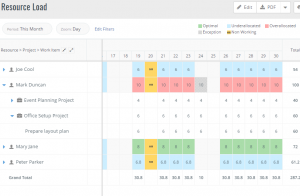As a small-business owner, you’re likely the one making all major decisions about your organization. However, is your business fully prepared for the unthinkable? Every year, there are more than 1,250 tornadoes in the U.S. and almost 1.3 million fires damage property. Fire was responsible for more than $ 1.6 billion in property damage in 2014, according to the National Fire Protection Agency (NFPA).
Did you know that every 30 minutes somewhere in America a vehicle crashes into a building? What if that building was yours, and your computer system was damaged or your storefront was destroyed? Acceptable risk-management solutions mean your small-business disaster plan covers as many hypothetical situations as possible, so you can protect your assets and continue providing exceptional customer service — even when the unthinkable happens.
To make an effective disaster plan, here are three tips to consider:
Brainstorm Business Risks
The best place to start is to assess your known risks and create a plan that ensures continuity of operations, if a disaster occurs. For example, if you have paper documents (employee records, customer invoices, check copies, etc.) make sure essential records are stored in a fireproof and waterproof security safe. It is a good idea to store additional paper or digital copies in a safe, off-site location, too. A well-designed disaster plan for your business-critical electronic files includes physical and Web-based backup procedures that enable remote access within a secure environment. This utilizes advanced technology that guards your data from cyber-criminals and unintentional exploitation by employees.
Business readiness plans require ongoing review and modification to stay up to date. As your business grows, evaluate your plan and make necessary adjustments. A thorough preparedness evaluation once a year will help you be equipped for the worst and recover faster after an emergency.
Leverage Risk-Management Resources
Once you feel confident all known risks have been identified, dive deeper by consulting the experts. The American Red Cross Ready Rating guide provides resources to help organizations prepare for emergencies. Membership is free and completing the 123-point assessment gives business owners insightful information to help them improve current protocol or start from scratch. The city or county Emergency Management Council (EMC) in your area and your commercial insurance agent have valuable information about unusual disasters that may impact your business. Talk to other local-business owners, check with your small-business administration support office, the regional EMC, and your insurance agent to make sure you have a comprehensive view of company risks and liabilities. Access the Ready Rating guide online to get started, then ask your local resources to review your assessment and make appropriate recommendations.
Implement a Training and Professional Development Plan
Training employees and management to respond to an unexpected disaster is critical for protecting assets. A well-written plan that empowers employees to continue providing products and services without interruption helps business owners have confidence a disaster will not damage their reputation or cash flow. While sharing passcodes and pin-access numbers is taboo, there should be a way to access sensitive data in the event a key employee is absent from work. The disaster-training manual should cover everything from securing the physical building after a natural disaster to securely relocating cloud-based data if a breach occurs. Create risk-management company culture by asking your employees to look for weaknesses and strengths in your preparedness plan.
Risk management and disaster readiness is an ongoing process. No one can prepare for every possible emergency, but you can improve your emergency response by establishing a strong plan for your business and conducting regular reviews.
Business & Finance Articles on Business 2 Community(51)





